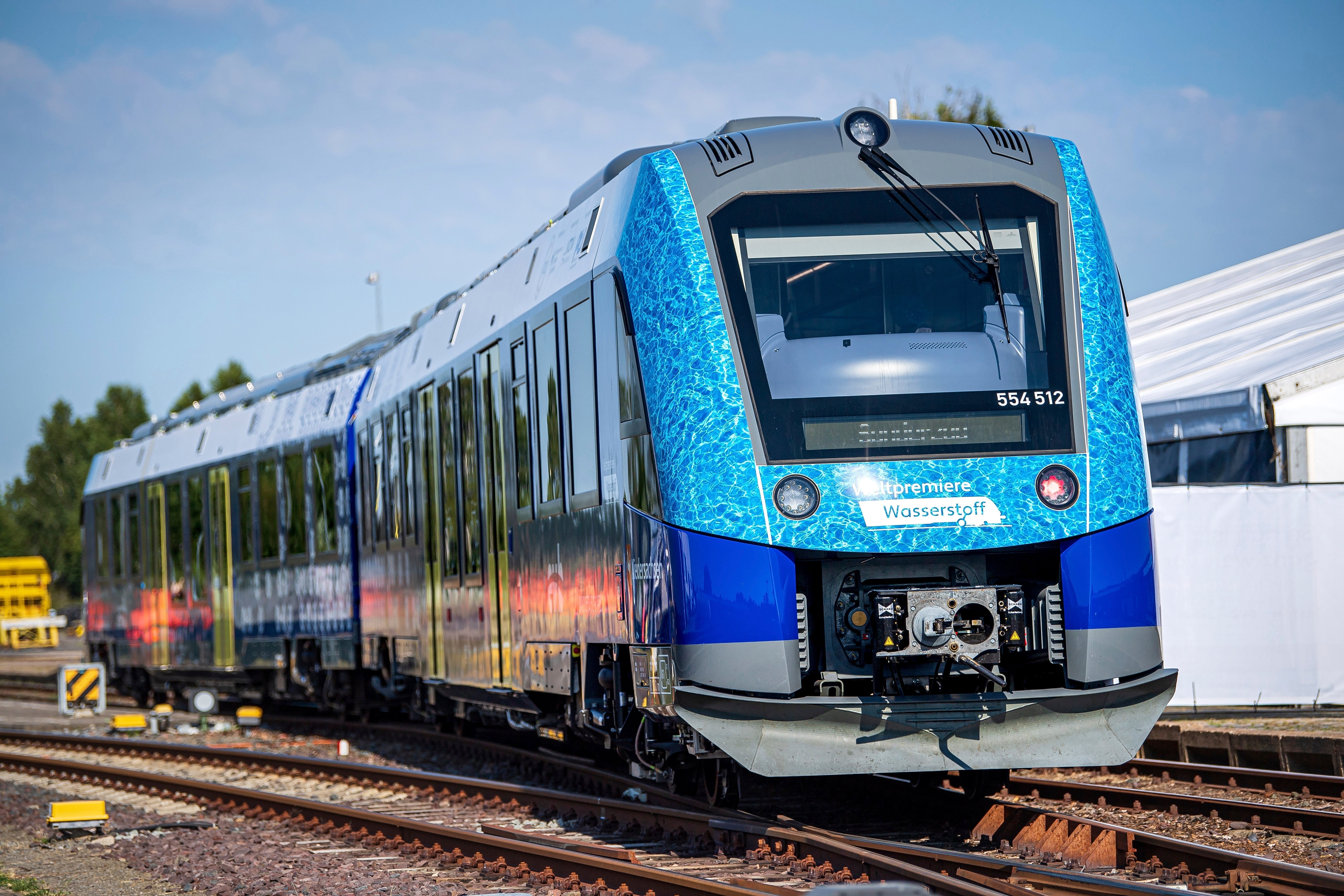Fleet of hydrogen passenger trains begins service in Germany
German officials have launched what they say is the world’s first fleet of hydrogen-powered passenger trains

Your support helps us to tell the story
From reproductive rights to climate change to Big Tech, The Independent is on the ground when the story is developing. Whether it's investigating the financials of Elon Musk's pro-Trump PAC or producing our latest documentary, 'The A Word', which shines a light on the American women fighting for reproductive rights, we know how important it is to parse out the facts from the messaging.
At such a critical moment in US history, we need reporters on the ground. Your donation allows us to keep sending journalists to speak to both sides of the story.
The Independent is trusted by Americans across the entire political spectrum. And unlike many other quality news outlets, we choose not to lock Americans out of our reporting and analysis with paywalls. We believe quality journalism should be available to everyone, paid for by those who can afford it.
Your support makes all the difference.German officials launched what they say is the world's first fleet of hydrogen-powered passenger trains Wednesday, replacing 15 diesel trains that previously operated on nonelectrified tracks in the state of Lower Saxony.
The 14 trains use hydrogen fuel cells to generate electricity that powers the engines. The German government has backed expanding the use of hydrogen as a clean alternative to fossil fuels.
State governor Stephan Weil said the 93-million-euro ($92 million) project was an “excellent example” for Lower Saxony's efforts to make its economy greener.
The trains manufactured by French company Alstom are operated by regional rail company LNVG on routes between the northern towns of Cuxhaven, Bremerhaven, Bremervoerde and Buxtehude.
Alstom says the Coradia iLint trains have a range of up to 1,000 kilometers (621 miles) and a maximum speed of 140 kph (87 mph). By using hydrogen produced with renewable energy the trains will save 1.6 million liters (more than 422,000 gallons) of diesel fuel a year.
The hydrogen is currently produced as a byproduct in chemical processes, but German specialty gas company Linde plans to manufacture it locally using only renewable energy within three years.